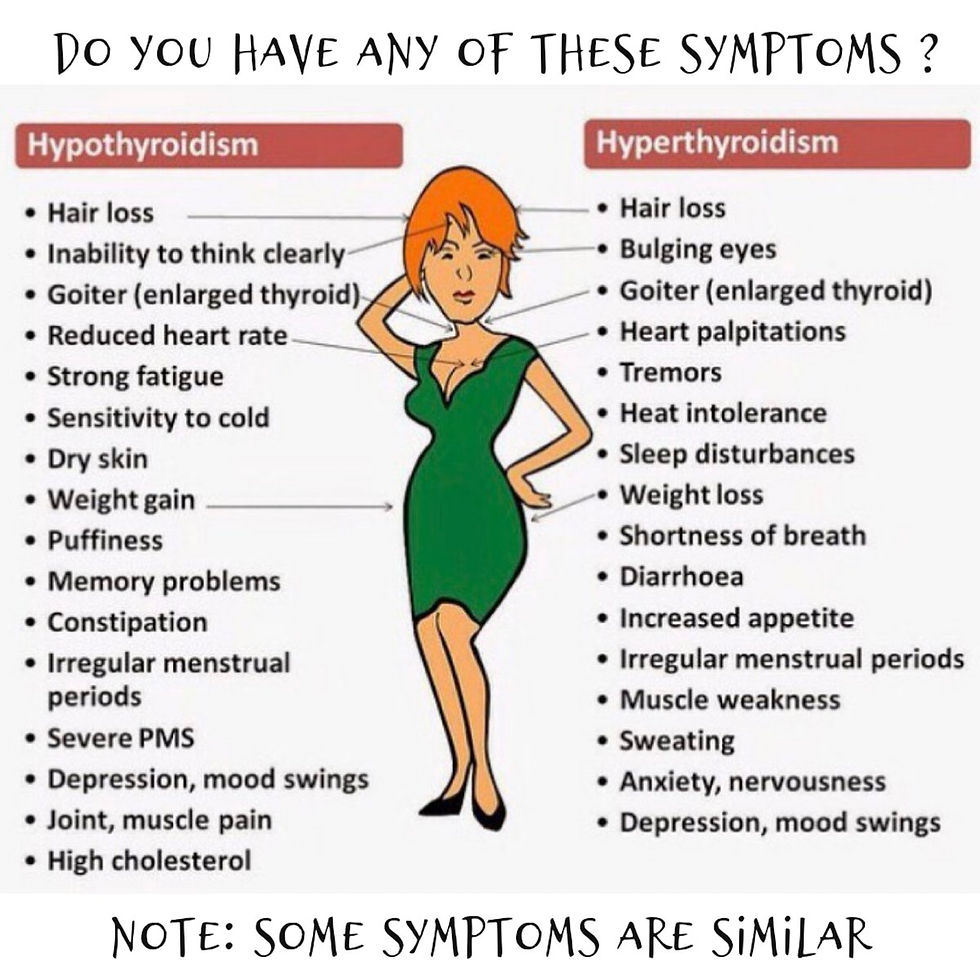World Thyroid Day
- Sanjay Trivedi
- May 25, 2019
- 1 min read

World Thyroid Day is celebrated on 25 May every year to raise awareness and reduce the prevalence of thyroid related disorders.The thyroid gland is a butterfly-shaped organ at the base of your neck. It produces Triiodothyronine and Thyroxine, which should not be too high (Hyperthyroidism) or too low (Hypothyroidism).

Symptoms of Hyperthyroidism Excessive production of thyroid hormone results in hyperthyroidism, a less common condition than hypothyroidism. Symptoms of hypothyroidism usually relate to increased metabolism. In mild cases, there may not be apparent symptoms. Hyperthyroidism can also result in the formation of a goitre. Some of the common symptoms include:
Tremor
Nervousness
Fast heart rate
Fatigue
Intolerance for heat
Increase in bowel movements
Unintentional weight loss
Diagnosis of Thyroid Disorders
Symptoms of Hypothyroidism Hypothyroidism occurs because the thyroid gland starts producing an insufficient amount of thyroid hormone. It develops due to problems within the thyroid gland, pituitary gland, or hypothalamus. It can also result in the formation of a goitre, caused by the enlargement of the thyroid gland. Some of the common symptoms of hypothyroidism are:
Fatigue
Poor Concentration
Dry Skin
Constipation
Feeling Cold
Fluid Retention/Weight Gain
Muscle and Joint Aches
Depression
Hair Loss
Prolonged or excessive bleeding in women/Scanty or very less periods
Amenorrhea (a rare condition caused by hormone imbalance) can cause your periods to stop for several months or longer







Comments